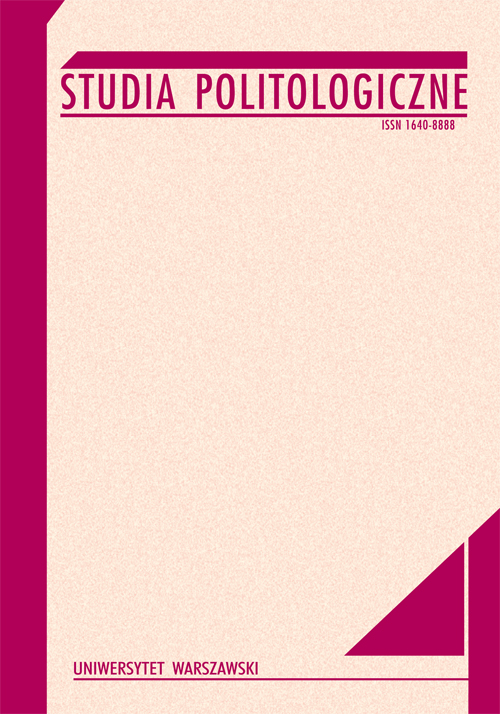The evolution of India-Central Europe relations
after the Cold War
The evolution of India-Central Europe relations
after the Cold War
Author(s): Tomasz ŁukaszukSubject(s): Politics / Political Sciences, Geopolitics
Published by: Wydział Nauk Politycznych i Studiów Międzynarodowych UW
Keywords: Central Europe; India; developing countries; cooperation
Summary/Abstract: The primary purpose of the article is to present the long term ties between India and Central Europe, and examine the transformation of their relationship after the end of the Cold War. Using J.A. Braveboy-Wagner’s liberal approach to diplomacy and foreign policy-making of developing countries as a tool of analysis, the article shows how the executive preferences of political leaders, historical narratives, and the strength of local values such as soft power, have influenced the political and economic cooperation between India and the Visegrad Group of countries that constitute the core of Central Europe– the Czech Republic, Hungary, Poland, and Slovakia. This method helps to show that contrary to the widely held opinion1 that the bonds between the Indian subcontinent and Central Europe were an artificial creation of the Soviet Union, they were instead created much earlier by contacts of Mahatma Gandhi, Jawaharlal Nehru, and Rabindranath Tagore in the first half of the 20th century. Indeed, a mutual interest and fascination between the two parties, combined with the complementary of needs of both sides after the end of WWII resulted in the development of a promising relationship in the 1960’s and 1970’s. Unfortunately, despite a lot of effort this promising partnership has failed to deliver since the end of the Cold War, and this paper is an attempt to find an explanation for this situation. The European’s focus on integrating with European institutions on one hand, and India’s new foreign policy priorities that were driven by modernization and regional, and then global power aspirations, on the other hand, weakened the intensity of this cooperation for two decades. The completing of the European Union enlargement process in 2004, and the increasing influence of China in Central Europe since 2012, has triggered a reaction by India in the form of the creation of India-Central Europe Business Forum in 2014, which until now has not yet met expectations. The article points to the potential of the Visegrad Group+ (V4+) formula of cooperation, which still possesses many untapped opportunities.
Journal: Studia Politologiczne
- Issue Year: 56/2020
- Issue No: 56
- Page Range: 231-254
- Page Count: 24
- Language: English

